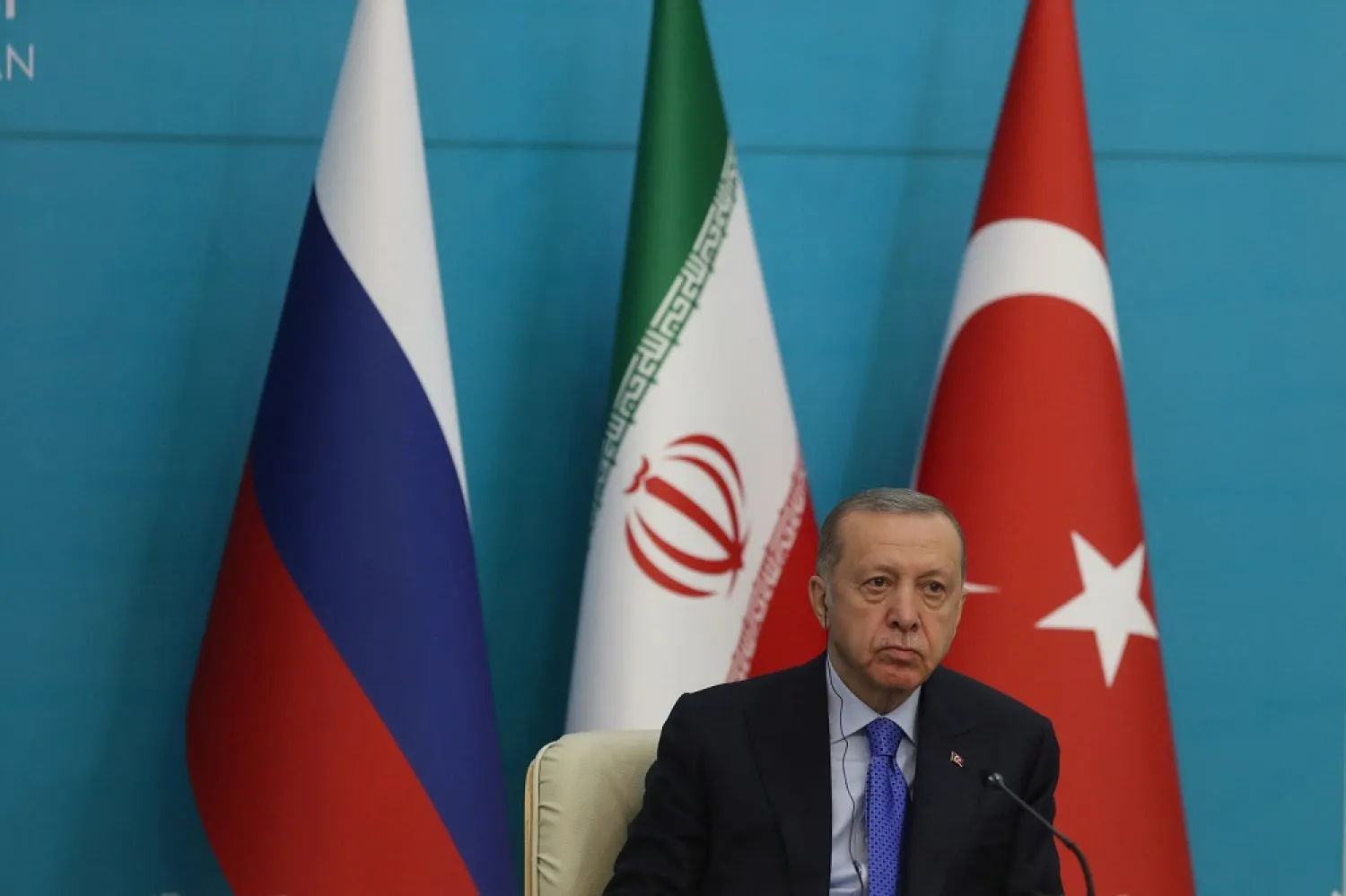Turkish President Recep Tayyip Erdogan says his government's plan for a new military offensive in northern Syria will be on the table as long as Kurdish militants continue to pose a security threat to his country.
Erdogan also called on the United States to pull troops from east of the Euphrates River, accusing the NATO ally, once again, of training and helping a Syrian Kurdish faction that Ankara considers to be terrorists.
Erdogan made the comments late Tuesday on his return from a visit to Tehran, where he met with Iranian President Ebrahim Raisi and Russian President Vladimir Putin. The conflict in Syria was among the topics they discussed, and Erdogan sought support for a new Turkish incursion against the US-backed Syrian Kurdish fighters.
Turkey's Hurriyet newspaper and other media published Erdogan's remarks on Wednesday.
In May, Erdogan announced plans for a new military operation in Syria to drive away the People’s Protection Units (YPG) that Ankara says are an extension of the banned Kurdistan Workers' Party, or PKK. The plans include resuming Turkish efforts to create a 30-kilometer (20-mile) safe zone along the border with Syria and enabling the voluntary return of Syrian refugees from Turkey, Erdogan has said.
Turkey has launched three major cross-border operations into Syria since 2016 and already controls some territories in the north.
"A new operation will continue to be on our agenda as long as our national security concerns are not resolved," Erdogan said. "We want Russia and Iran to be on our side in our fight against terrorist organizations."
He continued: "America is feeding terrorist organizations there. As soon as America withdraws or doesn't feed these terrorist organizations, our task will become easier."
Turkey has long been infuriated by US support for the Syrian Kurdish fighters, who form the backbone of US-led forces against the fight against the Islamic State group.
During the meeting in Tehran, Erdogan said Turkey was determined to "drive out the centers of evil" that target Turkey’s security, adding that the regions of Tel Rifaat and Manbij - where Turkey has said it plans to send troops - had turned into a "terror bed."
The three presidents released a joint statement that appeared to refer to Turkey's concerns. The statement said they "rejected all attempts to create new realities on the ground under the pretext of combating terrorism, including illegitimate self-rule initiatives."
But Iranian Supreme Leader Ali Khamenei, at a meeting with Erdogan earlier, warned Turkey against an incursion.
"Any sort of military attack in northern Syria will definitely harm Turkey, Syria and the entire region, and will benefit terrorists," Iran’s top leader said, stressing the need to "bring the issue to an end through talks."
Iran and Russia have backed President Bashar al-Assad’s government, while Turkey has supported armed opposition factions.









